

Look, I can’t make this stuff up. You can’t make this stuff up. Only one man can, and here's what I wrote about him in my review:
'Halfway through Calendar Girls, the new film by Madhur Bhandarkar, a young actress is shooting a film when she's sidetracked by the revelation that some superstar is shooting nearby. She bolts, thrilled, toward the celebrity, and while one might imagine a Khan cameo, the star in question is Bhandarkar, playing himself.'
'There are a couple of scenes where the ingenue OMGingly gushes over his work as the filmmaker puts on a consciously grave baritone, while dressed in bright red and yellow fleece jerseys Shah Rukh Khan may have discarded during Kuch Kuch Hota Hai.'
'This is all unbelievably meta. Bhandarkar, a maker of tacky cliche masquerading as so-called 'realistic' cinema, sitting opposite an actress played by -- of all people -- Ruhi Singh, who we last saw in Nisha Pahuja's terrific documentary The World Before Her, which showed Singh's frightening focus on the Miss India title.'
'Now, as an ambitious actress clambering up the Bollywood rungs, Ruhi seems almost to be playing Part 2 of that true story while Bhandarkar smiles and plays mentor -- which, I suppose, he is doing in real-life by giving the girl her first break.'
'The conversation is singularly bizarre as Bhandarkar says he wants to cast her in a film, but complains she's already signed another film with some random producer. “Oh sir,” says the girl, chirpy and unperturbed, 'I only did that because I wanted to buy a flat in Oberoi Springs.'
'To this Bhandarkar nods and hmmms with (grave) empathy, as if he condones the act, for that is how things ought to be done.'


This, ladies and gents, is a film about an invisible man. Who you can see. It truly doesn’t get more pointless than this.
From my review: 'There is no reason for this film to be in 3D, or, indeed, for it to exist in the first place.'
'Vishesh Films’ mascot Emraan Hashmi -- who deserves grand compensation for keeping a straight face through this dreadful film -- plays a character who turns invisible.'
'Everyone in Mr X knows who he is and can see him 70 percent of the time. So much for plot/mystery/suspense.'

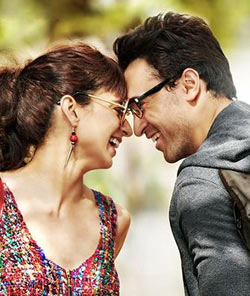
This Nikhil Advani film is about people who want to spare a guy his feelings by lying to him about his ex -- even if those lies lead to him committing suicide.
It is a painful, dated film trying to be hip and young, and that just makes it more unbearable.
Here's what I’d said in my review: 'Movies, like lovers, have their own personalities. There are some that you fall for instantly, some you keep gazing at despite yourself, some that grow on you, and some who are never quite right.'
'There are some that have issues, some that look a little underwhelming, some that seem too glossy and superficial, and some that end up too forgettable to talk about. Nikhil Advani’s Katti Batti is none of these things. It is an imbecilic, cliche-ridden embarrassment that made me want to punch it in the mouth.'

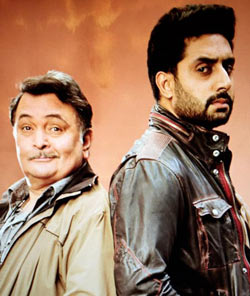
Here's what I, exhausted, had written in my review: 'At one point in All Is Well, Abhishek Bachchan picks up Rishi Kapoor and carries him on his shoulders. This is the big 'moment' of the film, clearly, the Shravan Kumar moment which shows the prodigal son lifting the father.'
'It is, however, a slow-motion mess, which is made further farcical by Rishi Kapoor, while hanging from Bachchan's left shoulder, trying to pat the younger actor's back a few times.'
'It's a tell-tale gesture; This isn't encouragement, it's a fine actor giving up on a bad film. Rishi Kapoor is tapping out.'


Poor, poor Vidya Balan. Poor, poor Rajkummar Rao. Poor, poor Emraan Hashmi. Poor us critics, who sat through this weepy film that really tried to pour on more misery.
Here'’s what I wrote in my review: 'Hari (Rajkummar Rao), an old, limping man, has vanished with his dead wife’s ashes. He has left, in their place, a novel he has apparently written on the fly instead of a letter of explanation, and it is this that his long-neglected son reads and sobs over.'
'The film is a dreadful drag, with godawful dialogue. 'Looks like you love your job,' Aarav says, played by a bored Emraan stating revelatory facts so often here that his name may well be Exposition Hashmi. 'How can you tell?' Vasudha (rather needlessly) gasps, but despite lovin’ it, soon resignedly declares. 'Mere ghar ka choola isi kaam se chalta hai.' Okay then.'

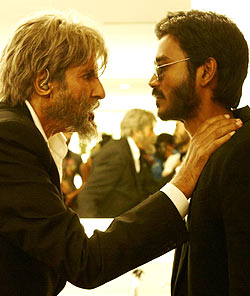
Satire and melodrama don’t make for an easy mix. Add to that the idea of a fantastical invention meant for those good at Dubsmash, and you might have some vague estimation of how preposterous R Balki's disastrous new film is.
Here's what I’d said in my review: 'It starts off with promise. Dhanush plays Danish, a village boy fathered by the movies, a mute boy who believes he can act better than the biggest superstar, who turns his head at 48-frames-per-second, and is passionate enough to believe his voicelessness won’t get in the way of his impending stardom.'
'Starting off as a bus conductor (just like another superstar you may have heard of) he makes his way to big bad Bombay, impresses an assistant director, and is then whisked off to Finland.'
'It is at this point that I decided Balki was giving us not a film aiming at truth but a preposterous fable, because his Finland is a ventriloquist-worshipping country dedicated to making state-of-the-art human puppets, fitting voice-boxes inside human throats and letting the mute person lip-sync someone else’s time-delayed conversation. It's awful writing.'

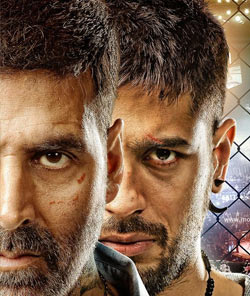
Karan Malhotra, making a film about the modern sport of mixed martial arts, a sport unfamiliar to most mainstream Indian audiences, decided, confoundingly enough, to make it in the style of a cheesy 80s throwback, complete with crying bastards and a drunk Jackie Shroff.
Here's what I wrote in my review: 'If the number of crucifixes in a film signify how pious it is, Brothers must have been shot in the Vatican.'

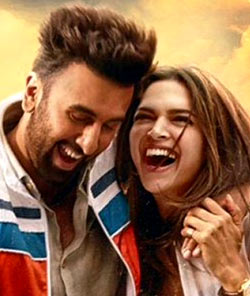
As a film, Tamasha has a lot going for it -- a handful of good scenes, fine acting, the frequently flawless Deepika Padukone and some eventually good music -- but the reason Imtiaz Ali's film makes this list is because it is, by far, the most pretentious Hindi film this year.
'This is a singularly insubstantial film that pretends to be profound: Despite having nothing to say, it constantly alludes to its own depth. The writing is absurd, where the characters start off behaving like 11 year olds and end up destroying their own lives.'
'One of the protagonists is clearly unstable, yet any mental issues are, alarmingly enough, pooh-poohed away in the name of whimsy, for he is a storyteller. The stories he tells are unimaginative and far from striking, though Ranbir Kapoor does pull off a thickly accented narration of a fictional film with grace. But even these actors can't lift this material.'
'There are touching moments, certainly, but Ali can craft those in his sleep, and don’t let them fool you: This is a resoundingly hollow film.'
'Tamasha is a work of indulgence and inconsistency, a film besotted by itself. A film where a filmmaker casts a young actor as his alter ego as a director, standing on stage as the audience applauds -- and the standing ovation continues while the storyteller and his girlfriend monkey around on the left of the stage. Clap on, the film insistently tells us, clap on.'

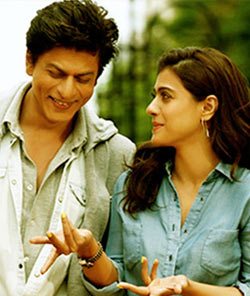
Armed with the greatest on-screen couple in modern Indian cinema, Rohit Shetty uncharacteristically chose to rein in his usual lunacy, resulting in his limpest film. At least the bad films had bad jokes. For the majority of its running time, Dilwale doesn't even try.
In my review I'd said: 'Budget and access. These have long been Shetty's favoured lego blocks, and they have never been more visible than in Dilwale, where the greatest onscreen pair in modern Hindi cinema are reduced to insignificance.'
'Sure, there is a sparkle here and a gleam there of what could have been -- and Kajol looks beguilingly beautiful, better here than ever -- but Dilwale is an absolute dud.'
'We expect insignificant froth from the director but this particular can of Rohit Shetty has been lying open too long. The contents are not merely un-fizzy but, unforgivably, flat.'

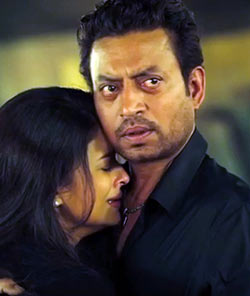
Dear Sanjay Gupta, there is a lesson to be learnt from Instagram: When you place the most beautiful woman in front of a camera, try going #nofilter instead of shooting it through an aquarium.
Here's what I’d written about this green mess: 'Jazbaa begins with Aishwarya Rai Bachchan jogging across Bombay in a black catsuit. (In case Gupta decides to switch genres midstream, I assume.) She drops her daughter off to school, goes and kicks ass in court, and then tells her childhood friend, Yohaan (Irrfan) -- a 'highly decorated' cop in the middle of some extortionate cops-only blackmail racket -- that she is a lawyer who defends the guilty because 'bekasoor hamaare fees afford nahin kar sakte', the innocent can't afford her.'
'All this after Khan, who wears dark shades indoors -- probably to shield himself from Gupta's relentlessly radioactive green lighting -- is accused by fellow cops of an Amitabh Bachchan swagger, which, it must be said, is the weirdest way to reference the heroine’s father-in-law.'